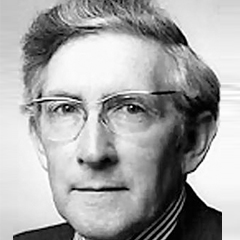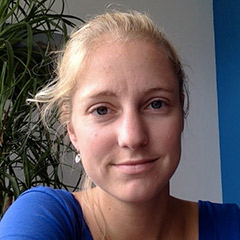Who we are
In 1974 the Institute of Neurological Sciences, Glasgow, was a world leader in brain injury research and clinical care. Professor Jennett and Mr Teasdale, (at that time a neurosurgical senior registrar), published a paper in the Lancet on the Assessment of Coma and Impaired Consciousness that proposed a structured method of assessment that would become known as the Glasgow Coma Scale. Forty years on, Sir Graham led a project to understand the current use of the Glasgow Coma Scale, its successes and its perceived shortcomings.
This research has been assimilated into the new Structured Approach to Assessment that is demonstrated in the video on this website. The video is supported by the downloadable GCS Aid. Short biographies of both Professor Teasdale and Jennett can be found below, along with details of the members of the team involved in this current project.
Sir Graham Teasdale

Graham Teasdale’s long interest in head injury and clinical research began during his basic medical and surgical training at the Royal Victoria Hospital, Newcastle, where he worked for Mr G F Rowbotham , author of the then standard British textbook ‘ Acute Injuries of the Head’. Subsequently, with the opportunity to train in Neurosurgery at the Institiute of Neurological Sciences in Glasgow in the 1970s, he joined the world class team led Professor Bryan Jennett. By 1981 he was Professor of Neurosurgery, leading a multi disciplinary collaborative team involving clinical and laboratory scientists, across surgical, medical, pathological, neuroradiological, nursing, psychology, statistical and epidemiological disciplines.
The research interactions linked many countries and covered many aspects of assessment, prognosis and management of acute brain damage from head injury and stroke. This work has resulted in over 300 peer reviewed publications. In 1974 Teasdale’s landmark paper with Professor Bryan Jennett described a scale for the assessment of consciousness, the Glasgow Coma Scale. It is used in hospitals all over the world to assess the severity of brain injuries. As well as being a global life saver it is the basis for much research, His work also contributed to patient prognostication in head injury with the Glasgow Outcome Scale and to the management of patients with aneurysmal subarachnoid haemorrhage. His clinical research was complemented by rigorous laboratory studies including the development of models of intracranial ischaemia.
Teasdale was President of the Society of British Neurological Surgeons between 2000 and 2002, President of the Royal College of Physicians and Surgeons of Glasgow between 2003 and 2006 and was made Knight Batchelor in 2006 for services of Neurosurgery and victims of head injuries. He is also a Fellow of the Academy of Medical Sciences and the Royal Society of Edinburgh, and has received the Distinguished Service Award of the American Association of Neurological Surgeons and the Medal of Honour of the World Federation of Neurosurgical Societies. Now retired, Teasdale nevertheless maintains an active interest in the traumatic brain injury research, in between fly fishing.
Bryan Jennett CBE (1926-2008)

Bryan Jennett was Professor of neurosurgery in at Glasgow University between 1968 and 1991, Dean of medicine in Glasgow from 1981 to 1986, and the leading academic neurosurgeon of his era. He was made a Commander of the British Empire in 1991. His major interest was head injury and the mechanisms of acute brain damage, a subject that had been of little interest to doctors previously. Pioneering work followed, applying laboratory science to clinical practice and during this time the Glasgow unit was a magnet for trainees and researchers from all over the world. The output of the "Glasgow School" revolutionised the management of head injured patients worldwide.
Long-standing uncertainties in establishing a prognosis for head injuries represented a significant chAllange, which was gradually unravelled through a description of the Persistent Vegetative State (1972), with the leading American neurologist, Dr Fred Plum; the Glasgow Coma Scale (1974), with Graham Teasdale and the Glasgow Outcome Scale (1975), with Michael Bond, later professor of psychological medicine in Glasgow. International collaborative studies of prognosis and treatment followed, unique in their statistical rigour, scale and continuity. His experimental and clinical studies as co-director with Murray Harper of a cerebral circulation group, advanced understanding of disorders of cerebral blood flow and intracranial pressure and led to new standards in neuro-anaesthesia and the care of patients with head injuries. Another crucial contribution was in establishing the criteria for "brain death;" an outstanding piece of clinical work and an important piece of philosophy. When the inevitable opposition arose Jennett remained resolute. Without his courageous, committed and at times uncompromising stance, transplantation programmes could have been set back for years.
Paul Brennan

Paul Brennan is a Senior Clinical Lecturer in Neurosurgery and Honorary Consultant Neurosurgeon in Edinburgh. He combines clinical training with laboratory research into the origin of gliomas and with clinical studies, most notably as part of the British Neurosurgical Trainee Research Collaborative where he co-leads the study into management of Chronic Subdural Haematomas. Despite his Edinburgh-centric training Brennan has been an integral part of the current Glasgow Coma Scale project. Working with Dr Florence Reith and Professor Andrew Maas, Belgium, he conducted a multi-disciplinary, international survey of attitudes towards and usage of the GCS. The results from this contributed to development of the new structured assessment. With Graham Teasdale he developed the script for the instructional video, which he directed. Brennan has also led the development of this website to showcase the new Structured Assessment tools.
Evelyn McElhinney

Evelyn McElhinney is a Nurse Lecturer in the Department of Nursing and Community Heath in Glasgow Caledonian’s School of Health and Life Sciences. Evelyn worked for 13 years in the NHS as an nurse in PACU, anaesthetics and as a nurse practitioner. Evelyn completed her Masters in Nursing and Post registration certificate in Learning and Teaching in Higher Education in 2008 and is a registered nurse teacher and Fellow of the Higher Education Academy. She has an interest in the use of technology for healthcare and with Sir Graham Teasdale developed the GCS self assessment component of the site and contributed to the GCS website design.
Douglas Allan

Douglas Allan was Senior Lecturer in the Department of Nursing and Community Heath in Glasgow Caledonian’s School of Health and Life Sciences. He previously trained in Neurosurgical Nursing and worked in the Neurointensive Care Unit at the Institute of Neurological Sciences, Southern General hospital, Glasgow. With Graham Teasdale and Paul Brennan he developed the script for the instructional video.
Florence Reith

Florence Reith is a young Belgian neurosurgeon trained at the Antwerp University Hospital in Belgium, currently undertaking a fellowship in Perth, Australia. During training she gained a PhD for her thesis entitled ‘Optimizing the use of the Glasgow Coma Scale: Clinical application and clinimetric characteristics’. This rigorously evaluated evidence of the reliability of the scale and the information provided by the interactions between the scale, its components and the total score. She also led international surveys of practices in the use of the GCS. The findings led to clear recommendations for optimized use of the scale in clinical practice and research and contributed to the development of the new structured assessment presented in this website.
